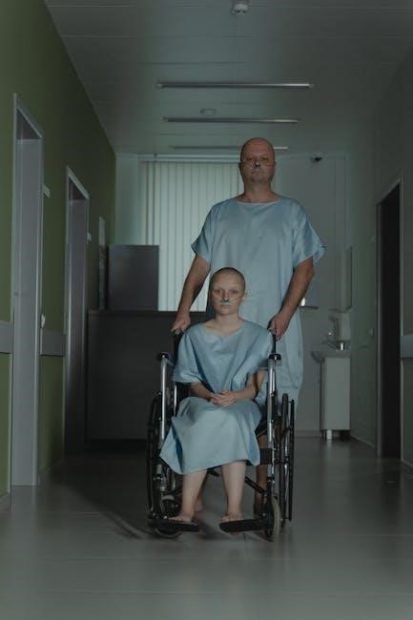Critical care nursing is a specialized field focusing on high-acuity patient care, requiring advanced skills and critical thinking. It involves managing life-threatening conditions and supporting recovery.
1.1. Definition and Scope of Critical Care Nursing
Critical care nursing involves specialized care for unstable, critically ill patients requiring intensive monitoring and life-sustaining interventions. It focuses on managing complex physiological and psychological needs, often in ICU settings. The scope includes advanced patient assessment, hemodynamic monitoring, and ethical decision-making. Critical care nurses must possess strong clinical skills, adaptability, and the ability to work collaboratively in high-stress environments to optimize patient outcomes and address diverse medical emergencies effectively.
1;2. Evolution of Critical Care Nursing as a Specialty
Critical care nursing emerged as a distinct specialty in the mid-20th century, driven by advancements in life-support technologies and the need for specialized patient care. Early developments included the establishment of intensive care units (ICUs) and the integration of monitoring tools. The role of critical care nurses expanded to include managing complex medical devices and applying evidence-based practices. Over time, the specialty has evolved to address diverse patient populations and incorporate cutting-edge therapies, solidifying its importance in modern healthcare systems globally.

Importance of Critical Care Nursing Questions and Answers
Critical care nursing questions and answers are essential for enhancing knowledge, improving exam preparation, and applying practical skills in high-acuity patient care scenarios.
2.1. Role in Nursing Education and Exam Preparation
Critical care nursing questions and answers play a vital role in nursing education by enhancing understanding of complex concepts and preparing students for exams. They help nurses apply theoretical knowledge to real-world scenarios, improving critical thinking and decision-making skills. These resources are essential for exam preparation, particularly for certifications like CCRN and NCLEX-RN, ensuring nurses are well-equipped to provide high-quality patient care in intensive settings. They also guide nurses in identifying knowledge gaps and improving clinical competencies.
2.2. Application in Real-World Patient Care Scenarios
Critical care nursing questions and answers are invaluable in real-world patient care, enabling nurses to apply evidence-based practices in high-stakes situations. They guide decision-making for conditions like cardiac arrest, sepsis, and respiratory failure, ensuring timely interventions. These resources also enhance proficiency in using monitoring systems and interpreting lab results, directly improving patient outcomes. By addressing common scenarios, they equip nurses with the confidence and expertise to deliver optimal care in dynamic intensive settings.

Key Topics Covered in Critical Care Nursing PDFs
Critical care nursing PDFs cover essential topics like patient assessment, hemodynamic monitoring, and ventilatory support, providing comprehensive guidance for nurses in intensive care settings and exam preparation.
3.1. Patient Assessment and Monitoring
Patient assessment and monitoring are cornerstone skills in critical care nursing, requiring a systematic approach to evaluate a patient’s condition. This includes continuous monitoring of vital signs, hemodynamic parameters, and respiratory status. Critical care nurses must identify subtle changes that indicate potential complications, such as cardiac arrhythmias or respiratory failure. Advanced technologies, like invasive monitoring systems, aid in early detection of instability, enabling timely interventions. Accurate documentation and effective communication of findings are essential for optimal patient outcomes in high-acuity settings.
3.2. Hemodynamic and Cardiovascular Care
Hemodynamic and cardiovascular care involves managing patients with complex cardiac conditions, such as heart failure or acute coronary syndromes. Critical care nurses monitor parameters like blood pressure, cardiac output, and vascular resistance using tools like Swan-Ganz catheters. They administer vasoactive medications and titrate infusions to optimize perfusion. Understanding preload, afterload, and contractility is essential for tailoring interventions. Effective cardiovascular care ensures adequate tissue oxygenation, preventing complications and promoting recovery in critically ill patients.
3.3. Respiratory and ventilatory Support
Respiratory and ventilatory support is crucial for critically ill patients, ensuring adequate oxygenation and ventilation. Critical care nurses assess lung mechanics, ABG results, and oxygenation status to guide interventions. Mechanical ventilation modes like SIMV and APRV are tailored to patient needs. Nurses monitor for complications like barotrauma or VILI and adjust settings to optimize outcomes. Patient-specific strategies, such as prone positioning and nebulization, improve respiratory function, while weaning plans facilitate recovery and extubation.

Certifications and Exams in Critical Care Nursing
Critical care nursing certifications, such as CCRN, validate expertise in high-acuity care. Passing exams like NCLEX-RN demonstrates competency, ensuring nurses provide evidence-based, life-saving interventions effectively.
4.1. CCRN (Critical Care Registered Nurse) Certification
CCRN certification is a prestigious credential for critical care nurses, demonstrating expertise in caring for critically ill patients. To earn it, nurses must pass a rigorous exam testing knowledge of cardiovascular, respiratory, neurological, and renal systems. Preparation materials, such as critical care nursing questions and answers PDFs, are invaluable for success. The certification highlights a nurse’s ability to provide high-quality, evidence-based care in intensive settings.
4.2. NCLEX-RN Critical Care Questions and Answers
NCLEX-RN critical care questions and answers are essential for nursing students and professionals preparing for exams. These resources focus on clinical reasoning and patient care scenarios, covering topics like hemodynamic monitoring and medical emergencies. Practice questions in PDF formats help candidates assess their knowledge and readiness for real-world challenges. They also provide insights into prioritizing care and applying evidence-based practices, ensuring competence in high-stakes environments.
Common Critical Care Nursing Questions
Critical care nurses frequently encounter questions about hemodynamic instability, ventilatory support, and ethical dilemmas. These scenarios require quick decision-making and a strong understanding of patient physiology and interventions.
5.1. Questions on Medical Emergencies and Interventions
Common questions address managing cardiac arrests, trauma, and acute respiratory failures. Nurses must prioritize assessments, such as identifying shock types or interpreting arrhythmias. Interventions like defibrillation, vasopressor administration, and airway management are critical. Ethical dilemmas, such as DNR decisions, also arise. These scenarios require rapid, evidence-based decision-making to stabilize patients. Understanding prioritization and timely interventions is vital for improving patient outcomes in high-stakes emergencies.
5.2. Ethical and Legal Issues in Critical Care
Ethical dilemmas in critical care often involve end-of-life decisions, such as DNR orders and withdrawal of life support. Legal issues include malpractice claims, negligence, and patient rights violations. Nurses must balance patient autonomy with medical advice, ensuring informed consent and confidentiality. Understanding these principles is crucial for navigating complex scenarios while adhering to professional standards and avoiding legal repercussions.
The Role of Technology in Critical Care Nursing
Technology enhances patient monitoring, enabling real-time data analysis and improving decision-making. AI and wearable devices optimize care delivery, ensuring timely interventions and better patient outcomes in critical settings.
6.1. Advancements in Patient Monitoring Systems
Advancements in patient monitoring systems have revolutionized critical care nursing, enabling real-time data collection and analysis. AI-powered devices and wearable technology provide accurate vital sign tracking, predicting potential complications early. These systems enhance clinical decision-making, allowing nurses to intervene promptly. Integration with electronic health records streamlines care coordination, reducing errors and improving patient outcomes. Such innovations are vital for delivering high-quality, efficient care in dynamic critical care environments.
6.2. Impact of AI and Wearable Devices in ICU Care
AI and wearable devices significantly enhance ICU care by providing real-time patient insights, improving early detection of complications, and enabling personalized interventions. These technologies reduce human error, streamline workflows, and allow nurses to focus on critical patient needs. Wearables continuously monitor vital signs, while AI analyzes data for predictive analytics, ensuring timely interventions and better patient outcomes in high-acuity settings. This integration transforms care delivery, making it more precise and responsive to patient needs.

Critical Thinking and Decision-Making in Nursing
Critical thinking and decision-making are essential in nursing, enabling nurses to analyze patient data, prioritize care, and implement effective interventions, ensuring optimal patient outcomes in dynamic settings.
7.1. Strategies for Effective Critical Thinking
Effective critical thinking in nursing involves systematic analysis of patient data, prioritization of care, and evidence-based decision-making. Nurses should employ strategies like identifying patterns, questioning assumptions, and reflecting on outcomes. Utilizing nursing diagnoses and care plans can guide structured thinking. Active listening, clear communication, and collaboration with the healthcare team also enhance critical thinking. Regular practice and feedback help refine these skills, ensuring better patient care and improved clinical outcomes in high-stakes environments.
7.2. Case Studies and Real-Life Scenarios
Case studies and real-life scenarios are essential for developing practical skills in critical care nursing. They present realistic patient situations, such as cardiac arrest, sepsis, or respiratory failure, requiring nurses to apply critical thinking. These scenarios often include multiple-choice questions or open-ended discussions to test problem-solving abilities. By analyzing these cases, nurses can improve their prioritization, decision-making, and communication skills. They also provide insights into managing complex conditions and integrating technology, like monitoring systems, into patient care. These tools enhance learning and preparation for real-world challenges.
Resources for Critical Care Nursing Preparation
PDF guides, online platforms, and study materials are essential resources for critical care nursing preparation. They include practice questions, case studies, and evidence-based care protocols.
8.1. Recommended PDF Guides and Study Materials
Recommended PDF guides and study materials for critical care nursing include comprehensive question banks, case studies, and clinical scenarios. These resources are designed to enhance critical thinking and exam preparation. They cover topics like hemodynamic monitoring, ventilatory support, and ethical dilemmas. Popular PDFs include the CCRN exam guide and NCLEX-RN critical care questions. These materials are widely available on educational platforms and websites, offering accessible tools for nurses to master complex care concepts effectively.
8.2. Online Platforms for Practice Questions
Online platforms like Quizlet and Docsity offer extensive libraries of critical care nursing practice questions. These platforms provide multiple-choice questions, case studies, and scenario-based exercises. They are ideal for self-assessment and exam preparation. Many platforms also offer flashcards and interactive tools to enhance learning. Additionally, websites like Nurseslabs and Critical Care Nurse Exam Guide provide free and paid resources to help nurses improve their clinical knowledge and decision-making skills effectively.
Sample Questions and Answers
Sample questions and answers in critical care nursing are essential for exam preparation and clinical skill improvement. They cover multiple-choice, true/false, and scenario-based queries, aiding nurses in mastering patient care strategies and decision-making under pressure.
9.1. Multiple-Choice Questions (MCQs) on Critical Care
MCQs are a cornerstone of critical care nursing preparation, offering focused queries on patient assessment, hemodynamics, and life-saving interventions. These questions simulate real-world clinical scenarios, helping nurses refine their decision-making skills. For example, a question might address identifying signs of cardiac tamponade or selecting appropriate ventilator settings. Answers are provided with rationales, enhancing learning and readiness for exams like the CCRN certification. Regular practice with MCQs builds confidence and clinical acumen, ensuring nurses are well-prepared for high-pressure situations in the ICU.
9.2. True/False and Scenario-Based Questions
True/False questions test factual knowledge, while scenario-based questions assess clinical judgment. For instance, “Is hypotension a sign of cardiac tamponade?” or “What is your first action for a patient with severe respiratory distress?” These questions mirror real-life situations, enhancing problem-solving skills. Scenario-based questions often involve prioritizing actions or identifying complications, ensuring nurses are prepared for complex patient care scenarios in critical settings.
The Future of Critical Care Nursing
The future of critical care nursing includes advancements in technology and AI, enabling better patient outcomes and enhancing nurses’ roles in delivering specialized care.
10.1. Emerging Trends and Innovations
Emerging trends in critical care nursing include advancements in AI, wearable devices, and telehealth, enhancing patient monitoring and care delivery. AI-driven tools improve diagnostic accuracy and personalized treatment plans. Innovations in ventilatory support and hemodynamic monitoring enable better patient outcomes. Integration of technology, such as real-time data analytics, supports predictive care and streamlined workflows. These advancements are reshaping ICU practices, emphasizing precision and efficiency in critical care nursing.
10.2. The Role of Nurses in Advancing Critical Care
Nurses play a pivotal role in advancing critical care by integrating new technologies and evidence-based practices. Their expertise in patient monitoring and ethical decision-making drives innovation. Critical care nurses advocate for patient-centered care, ensuring compassionate and equitable treatment. By staying updated on emerging trends, they influence future practices, fostering a culture of continuous improvement and excellence in intensive care settings.
Critical care nursing requires compassion, expertise, and continuous learning. Mastering questions and answers enhances skills, ensuring optimal patient outcomes and advancing excellence in intensive care settings.
11.1. Recap of Key Points
Critical care nursing is a high-stakes field requiring advanced skills and continuous learning. Questions and answers are vital for education, exam preparation, and real-world application. Key topics include patient assessment, hemodynamics, and ventilatory support. Certifications like CCRN and NCLEX-RN are crucial for professional growth. Technology advancements, ethical issues, and critical thinking strategies are also essential. Mastering these elements ensures nurses provide optimal care in intensive settings, improving patient outcomes and advancing their expertise.
11.2. Final Thoughts on Mastering Critical Care Nursing
Mastering critical care nursing demands dedication, continuous learning, and skill refinement. Leveraging resources like PDF guides and practice questions enhances knowledge and application. Staying updated on advancements and ethical considerations is crucial. These tools aid nurses in delivering high-quality care, ensuring better patient outcomes. By embracing lifelong learning and clinical expertise, nurses can excel in this dynamic field, making a meaningful impact on patient lives and advancing critical care nursing.
